NC Nursing License Defense Attorney
When the Board Comes Calling
If you’ve received a letter or email from the North Carolina Board of Nursing (NCBON), it’s natural to feel anxious. Many nurses assume that a complaint automatically means their career is over — it doesn’t. Speaking with a nursing license defense attorney early in the process can make all the difference.
Every year, the NCBON investigates thousands of complaints. The key is knowing what to do next and getting the right help early.
Brooks Peterson PLLC guides North Carolina nurses through every stage of the Board process, from the initial complaint to final resolution, with the goal of protecting your nursing license, your livelihood, and your reputation.
Understanding the NCBON and Its Authority
The NCBON enforces the Nurse Practice Act (N.C. Gen. Stat. § 90-171) and oversees the professional conduct of nurses in North Carolina. The Board can investigate complaints, hold hearings, and impose discipline ranging from a private letter of concern to license suspension or revocation.
If you’ve received notice of a complaint, that means the Board believes there may be a violation of the Nurse Practice Act or its administrative rules (found in Title 21, Chapter 36 of the North Carolina Administrative Code). It does not mean guilt or wrongdoing has been proven.
This process can be intimidating, but you have rights — including the right to be represented by a nursing license defense lawyer familiar with the NCBON’s procedures and expectations.
Why You Need a Nursing License Defense Lawyer
The NCBON’s disciplinary process involves multiple steps and strict deadlines. Without experienced representation, nurses can unintentionally make mistakes that hurt their case — such as missing response dates, providing unnecessary information, or agreeing to terms they don’t fully understand.
Working with an experienced nursing license defense lawyer ensures that every filing, deadline, and communication with the Board is handled correctly.
A knowledgeable North Carolina nursing license attorney can help you:
Respond to Board complaints and inquiries
Gather and present evidence in your favor
Protect your statements and rights during interviews or hearings
Negotiate resolutions that avoid harsh discipline
Maintain your ability to practice nursing in North Carolina
We know how the NCBON operates and what it takes to protect your license.
What to Expect During an NCBON Investigation
After receiving a complaint, the Board may request a written response, conduct interviews, or obtain records from your employer. In some cases, you may request to appear before a disciplinary or settlement conference.
Throughout this process, your nursing license defense attorney will:
Communicate directly with Board staff on your behalf
Help you prepare accurate and strategic responses
Attend interviews or hearings with you
Present mitigating evidence to protect your license
Our goal is to resolve matters before they become formal hearings or disciplinary actions whenever possible.
Burden of Proof
Just like in court, the Board of Nursing must meet a legal burden before it can take action against your license. For the NCBON, that burden is “clear and convincing evidence” that the nurse violated the Nursing Practice Act (N.C. Gen. Stat. §150B-25.1(b)).
This means the Board must present substantial, persuasive evidence — not assumptions or hearsay — before any discipline can be imposed.
Having an experienced nursing license defense attorney ensures your side of the story and your evidence are properly presented and protected.
If You Are a Nurse Practitioner (NP) or Certified Registered Nurse Anesthetist (CRNA)
Advanced practice nurses often face longer and more complex Board processes.
For Nurse Practitioners (NPs):
Cases may include a records request to your practice or employer.
You are jointly governed by the North Carolina Medical Board, which can recommend discipline.
Cases often begin with a “joint subcommittee” review before reaching the full Board.
For CRNAs:
Complaints involving anesthesia care may trigger external peer reviews, which can extend timelines.
In either case, representation by counsel familiar with both nursing and medical regulatory systems is critical.
Take the Next Step
If you’ve received notice of a complaint from the North Carolina Board of Nursing, don’t face it alone. The earlier you involve a North Carolina nursing license defense attorney in your situation the better your options will be.
Call (919) 616-3317 or fill out our secure online consultation form to schedule your free consultation with a nursing license defense lawyer who understands how to protect your career.
Possible Outcomes and Sanctions
The NCBON has several options depending on the facts of your case, your prior history, and the seriousness of the allegations. Common outcomes include:
Dismissal – The complaint is closed with no action.
Private Letter of Concern – A confidential advisory note, not considered disciplinary.
Non-Disciplinary Consent Order – Often requires education, remediation, or training.
Public Reprimand or Public Consent Order – Formal discipline that appears on your record.
Probation or Practice Restrictions – You may continue working under conditions.
Suspension or Revocation – The most serious sanctions, used for major or repeated violations.
If you work with a nursing license defense lawyer, the goal is always to achieve the least severe outcome possible — ideally, one that keeps your record clean and your career moving forward.
The Settlement Conference
Before a case proceeds to a formal hearing, you may be offered or request an informal settlement conference — a confidential meeting with two Board members, the investigator, and the Board’s attorney.
This meeting allows you to present mitigating factors — context, evidence, or circumstances that help the Board understand your situation.
We help clients prepare detailed mitigation narratives, aligning with the Board’s Sanctioning Guidelines to demonstrate accountability and professionalism. Many cases are resolved favorably at this stage, avoiding a formal hearing.
Substance Use or Impairment Concerns
If your case involves allegations of drug use, alcohol misuse, or impairment, the NCBON may refer you to one of several rehabilitative programs instead of imposing immediate discipline:
Alternative Program (AP) – A voluntary, confidential recovery-monitoring program.
Intervention Program (IP) – Early intervention and one-year monitoring.
Dependency Program (DP) – A public program for nurses ineligible for the AP.
These programs are designed to help nurses return to safe practice under structured oversight. Successful participation often prevents long-term disciplinary action and public record publication.
Appealing a Board Decision
If you disagree with the NCBON’s final decision, you have the right to appeal within 30 days to the Superior Court in your county or in Wake County (where the Board is located).
Our firm assists with:
Reviewing the administrative record for appealable issues
Drafting the written notice of appeal
Preparing court filings and arguments for review
Appeals are time-sensitive — missing the 30-day deadline can forfeit your right to challenge the Board’s decision.
What Happens After a Complaint Is Filed — The Interview
Nearly every nurse who receives a complaint will interact with a Board investigator. The interview is voluntary — but it’s one of your best opportunities to tell your story clearly and accurately.
During the interview, the investigator will review the complaint, present the case file, and ask questions about your education, professional background, and the incident that led to the report.
Having an nursing license attorney present is essential to help clients:
--Review and prepare for all documentation and evidence
--Identify mitigating factors and inconsistencies
--Stay calm and confident under questioning
--Avoid statements that could be misunderstood or misused
Once the interview is complete, it typically takes a few weeks for the Board’s internal Investigative Committee to make a disciplinary recommendation.






